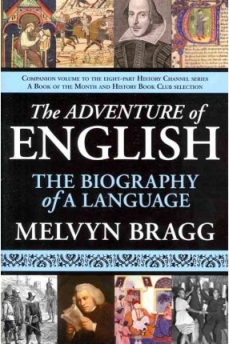- HOME
- INTRO TO THE FORUM
- USE AND MISUSE
- BADLY WRITTEN, BADLY SPOKEN
- GETTING
TO KNOW ENGLISH - PREPARING FOR ENGLISH PROFICIENCY TESTS
- GOING DEEPER INTO ENGLISH
- YOU ASKED ME THIS QUESTION
- EDUCATION AND TEACHING FORUM
- ADVICE AND DISSENT
- MY MEDIA ENGLISH WATCH
- STUDENTS' SOUNDING BOARD
- LANGUAGE HUMOR AT ITS FINEST
- THE LOUNGE
- NOTABLE WORKS BY OUR VERY OWN
- ESSAYS BY JOSE CARILLO
- Long Noun Forms Make Sentences Exasperatingly Difficult To Grasp
- Good Conversationalists Phrase Their Tag Questions With Finesse
- The Pronoun “None” Can Mean Either “Not One” Or “Not Any”
- A Rather Curious State Of Affairs In The Grammar Of “Do”-Questions
- Why I Consistently Use The Serial Comma
- Misuse Of “Lie” And “Lay” Punctures Many Writers’ Command Of English
- ABOUT JOSE CARILLO
- READINGS ABOUT LANGUAGE
- TIME OUT FROM ENGLISH GRAMMAR
- NEWS AND COMMENTARY
- BOOKSHOP
- ARCHIVES
Click here to recommend us!
READINGS IN LANGUAGE
This section features links to interesting, instructive, or thought-provoking readings about the English language. The selections could be anywhere from light and humorous to serious and scholarly, and they range widely from the reading, writing, listening, and speaking disciplines to the teaching and learning of English.
An enthralling history of English as the world’s collective tongue
First published in hardcover in 2004 and reissued in paperback last April, Melvyn Bragg’s The Adventure of English: The Biography of a Language (Arcade Publishing, 336 pages paperback) chronicles the remarkable evolution of the English language from its beginnings around A.D. 500 as a minor guttural Germanic dialect to its current position as the world’s global language. Bragg, an accomplished novelist and TV broadcaster, tells this history through breezy, colorful anecdotes that have been criticized by professional linguists as often less than historically accurate. Still, he manages to weave an enthralling narrative of English as a collective tongue that ingeniously and marvelously assimilated so many cultures and so many other languages over the centuries.

In “The subtle and ruthless survivor,” an early review of Bragg’s The Adventure of English for The Guardian in the UK, English senior lecturer John Mullan at University College of London observes that Bragg is an expert translator in areas that academics find difficult to popularize. “Here he is at his best where he feels least confident,” Mullan says. “On Shakespeare or Wordsworth or Austen, he repeats truisms (and shows himself to be, like Dr Johnson, too reliant on literature as a guide to the history of language). However, [in] encapsulating academic knowledge of Old and Middle English he produces a pithy, accessible narrative… Bragg describes [the emergent English language] in almost Darwinian terms, a ‘subtle and ruthless’ survivor that defeated competing tongues over the next three centuries, refusing to marry with the indigenous Celtic language (which has left us only about two dozen words).”
In “English the Conqueror,” another early review of Bragg’s The Adventure of English that came out in JUST Book Reviews, Milan-based English teacher Judith Gorham praises the book for being true to its title. “The book is so successful because of its double theme: history and English language,” Gorham says. “Just occasionally the tumult of history becomes a little wearing, and this is when Bragg brings in too much to illustrate a point, such as when Viking runes (writing symbols) were so developed they could have coped with War and Peace… Sometimes Bragg’s attempts to disperse his enthusiasm are irritating. The 16th century burning of the Wycliffe Bible showed ‘what could and would happen to those who challenge the Pope.’ Surely it showed what did happen. But it is worth putting up with these slight excesses, precisely because Bragg is so genuinely enthusiastic.”
Read excerpts from Melvyn Bragg’s The Adventure of English in BookBrowse.com now!
Read John Mullan’s “The subtle and ruthless survivor” in The Guardian.uk website now!
Read Judith Gorham’s “English the Conqueror” in the JUST Book Reviews website now!
ABOUT THE AUTHOR:
Melvyn Bragg is an English author best-known for his work as a writer and broadcaster for the BBC in the United Kingdom. A prolific novelist and writer of nonfiction, he had written scores of television and film screenplays over the past 50 years, including the TV biographical dramas The Debussy Film (1965) and Isadora Duncan, the Biggest Dancer in the World (1967) and The Music Lovers (1970), a film about Peter Tchaikovsky, all three of which Bragg did in collaboration with noted film director Ken Russell. Bragg has to his credit a total of 20 novels, 14 nonfiction books, and two children’s books.
RELATED READING:
In “Worn-out Words,” an article that came out in the June 30, 2011 issue of The Guardian in the UK, Adam Horovitz puts together 13 English expressions that have become such annoying clichés. The comments about the clichés were drawn from poets attending this year’s Ledbury Poetry Festival, who were asked to name what they thought were expressions so overused they have lost all meaning. Three of their pet peeves: “thinking outside the box,” “devastated,” and “No one ever died of a broken heart.”
Read Adam Horovitz’s “Worn-out words” in The Guardian.uk now!
Click to read comments or post a comment
View the complete list of postings in this section
(requires registration to post)







